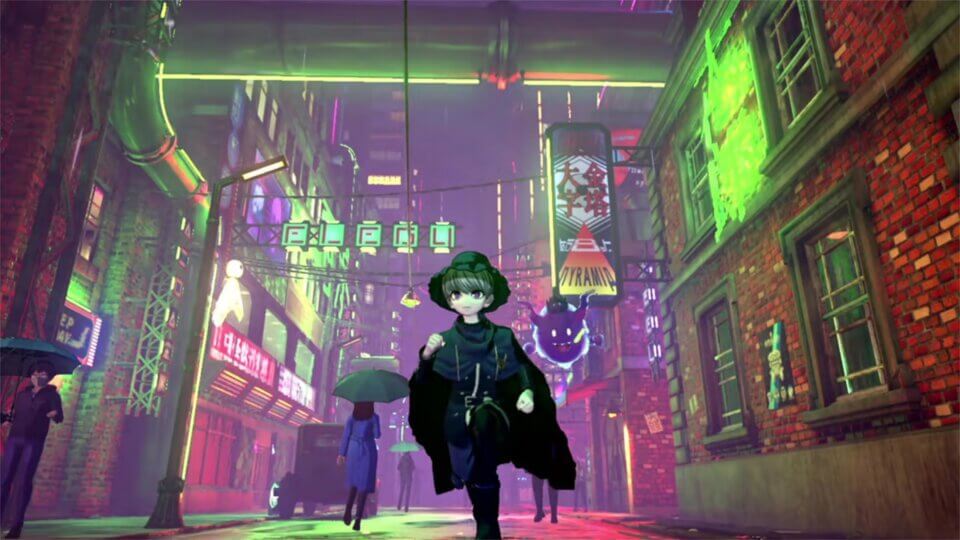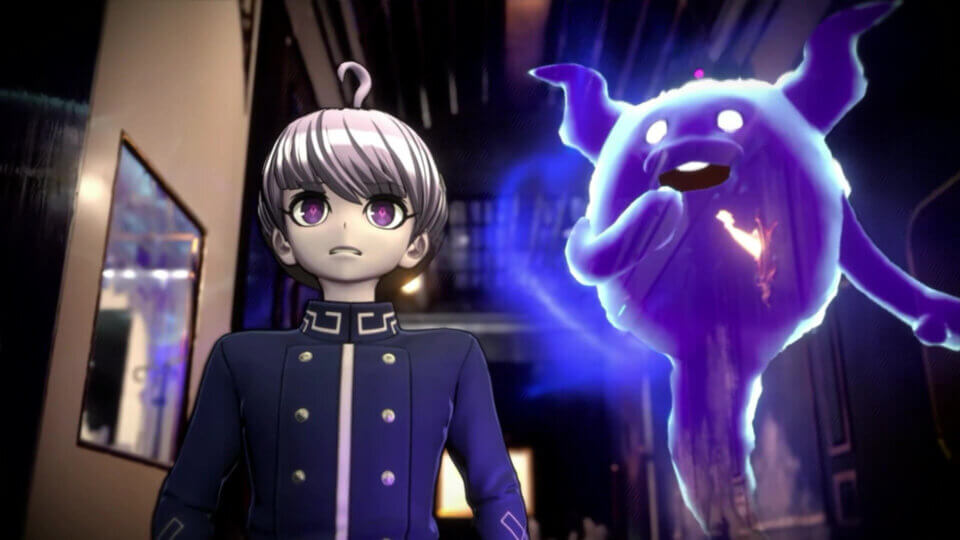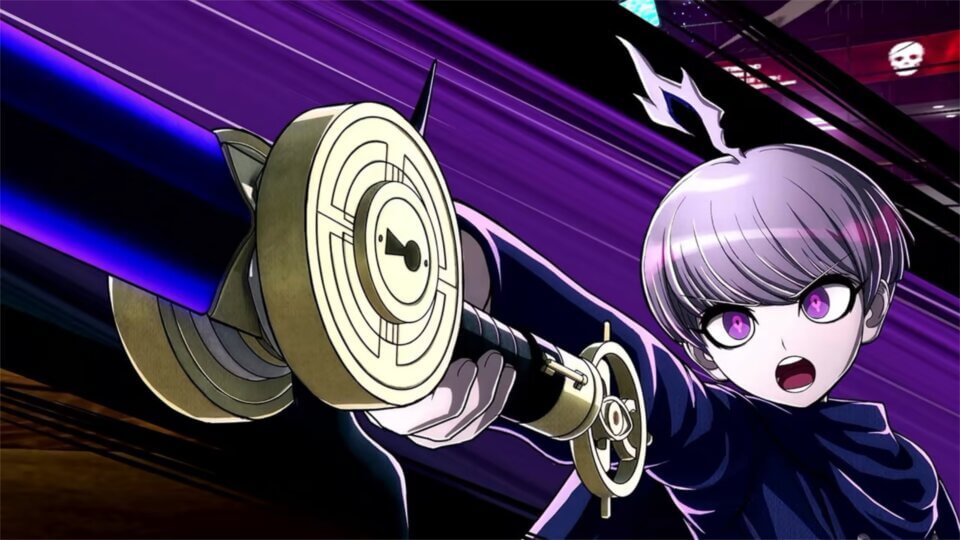Ever since falling in love with the Danganronpa series largely due to its captivating writing, interesting and varied casts of characters and engaging scenarios, I’ve eagerly awaited every title that writer Kazutaka Kodaka lends his talents to. Master Detective Archives: Rain Code was a game I was even more excited for, not only because it included Kodaka back as one of the writers, it also brought back Rui Komatsuzaki and Masafumi Takada the artist and composer respectively of the Danganronpa series to create a new murder mystery title that not only acts as a spiritual successor to Danganronpa but also takes the gameplay to new levels while keeping many of the mystery solving mechanics similar to what’s already proven to be great.

Rain Code takes no time at all to get you right into the thick of an interesting story. You awaken as an amnesiac character who soon discovers his name is Yuma Kokohead. Yes, it’s a really overused trope for sure, but it’s not the sole hinge that the story leans on and it fairly quickly moves past this key point to get on with the story. Yuma is bound to a god of death character called Shinigami and she acts as a great bouncing board for conversation and ideas when it comes to the cases you’ll face later as well as a decent companion that helps Yuma throughout the game.
Upon awakening, Yuma is tasked with boarding a train, upon which he meets a number of master detectives from the World Detective Organisation, a group which are known to be some of the best when it comes to detective work and utilise supernatural abilities to help them solve tough cases. Before long Yuma finds himself needing to use his own detective skills as he’s thrust into a very nasty and grim situation. One that kicks off a long series of events and multiple cases that need solving across the adventure that is Master Detective Archives: Rain Code.

The game’s first mystery does a great job at also being a tutorial for what you’ll be doing going forward to solve the remainder of the cases in the main story. It’s not overwhelming as the pacing of new systems and mecahnics comes at a steady frequency and I appreciate games that teach you the ropes by letting you actively progress and do the thing it’s trying to teach you, rather than throw up a bunch of text boxes explaining mechanics you have no reference for and expect you to remember how to do them many hours later when they’re actually releavant.
Much like with the Danganronpa series, one of the key standouts in Rain Code is it’s engaging writing and characters. It’s varied and interesting cast of characters, many of which with their own Forensic Forte, a somewhat enhanced supernatural ability that helps with detective work, their interactions with Yuma and links to the cases created an addicting and enjoyable experience that I continually wanted to progress through just to learn more about these characters and also see how they grew throughout the journey. Each has an interesting, unique design and individual traits and personalities that keep the person distinct from the others that make up the core cast of the game which is a thing I love to see. Best of all, the game is almost completely voice acted, with really solid performances all-round, which kept me far more engaged overall.

When it comes to gameplay, Rain Code plays as an adventure game where you can free roam the city and environments interacting with NPC’s and gathering clues with a significant amount of freedom at times. And as mentioned, solving a number of cases along the way. The core loop of the cases has you traversing the city looking for clues and gaining intel releavant to the case to earn Detective Points, which helps increase your detective rank and skills that you can unlock within the game’s skill tree, further increasing things such as your health bar and decision time when making crucial decisions in the later parts of an investigation. These clues are stored in your inventory as Solution Keys and come in handy within the Labyrinth portion of the game.
Following the gathering of evidence, you’ll then go into a realm created by Shinigami called a Mystery Labyrinth where you’ll adventure through a reality that is a representation of the core case you’re working to solve. Here you’ll need to use your gathered solutions to combat the opposing forces and traps within the Labyrinth and ultimately discover the culprit of the crime.

The combat sequences consist of rebutting arguments, utilising your Solution Keys against statements you know to be untrue thanks to the investigation phase of the case to come to the correct solution within the Labyrinth to solve the crimes taking place in the real world. This portion of the game reminds me a lot of the concept behind the Palaces in Persona 5, and also includes twisted versions of characters that exist from the real world, so fans of that series will be able to grasp where the inspirations for the Labyrinths may have come from.
Due to how many of the cases are structured, they do become a tad repetitive at times and some of them do overstay their welcome as the Labyrinth portions occasionally feel like it’s going around in circles, leading to a solution that’s already pretty well understood but needing to wait until the game lets you get to a point where you’re ‘allowed’ to solve it and move on. But overall it still provides a satisfying experience overall, even if some of the cases are better structured than others.
Thankfully, you’ll be able to free roam the city when in between cases which gives a nice breather between cases and let’s you complete smaller scale side quests between the main cases which provides a nice burst of fresh air into the experience before jumping into another major chapter.

When it comes to visuals and performance I was surprised with how great Rain Code was for the most part. The constantly raining neon lit city has times when it really pops on screen and the game overall has a great artistic direction, further enhanced by some flashy lighting effects. There are some times though where some assets have a strange bluryness, and was noticed a little more when playing in handheld mode and times where the game did have some frame drops in the more detailed areas, but these were few and far between for myself and didn’t impact my overall enjoyment of the game.
While I enjoyed just about the whole Rain Code experience, there were some minor gripes I did have that I did have. Firstly, the experience is fairly easy overall, failing to choose the correct Solution Key in combat or missing and taking damage doesn’t really have much consequence, and there are times where the game felt like it was leading me to a solution more than it needed to. There is a question at the start of the game that seems to probe around the difficulty you’d like but it’s really unclear how and what it changes about the experience. Secondly, I would have loved some more time with many of the side characters to further see them grow and also spend time utilising their individual fortes to solve cases more as part of a team of companions in more ways than what’s offered. They’re so well written at times and it’s just a shame many didn’t get to reach their full potential. There are some DLC expansions planned that appear to delve deeper into some of the side characters, but how much so is yet to be seen and clearly it’s not part of the core purchase without the season pass.

Final Thoughts
Master Detective Archives: Rain Code offers a fun murder mystery that acts as a true spiritual successor to the Danganronpa series and even builds upon many of the core systems that made that series of games resonate so well with so many around the world. It features a greatly written story filled with quirky and interesting characters, and is almost fully voiced, helping the story be more engaging and cinematic. While I did find it to be a little easy overall, with some sections that should have had serious consequences for failing being too forgiving and some characters that failed to live up to their potential, it’s still a game I would recommend to anyone that’s interested in murder mystery games or the previous works of Kazutaka Kodaka. The game’s narrative definitely lives up calibre of story I knew the team invloved in the development was capable of telling.
A Nintendo Switch review code was provided by Nintendo for the purpose of this review.
If you want to see more content like this and never miss one of our frequent gaming and anime giveaways come and Follow Ani-Game on Twitter.
8.5
- + Well written story and characters
- + Engaging murder mystery
- + Great art direction
- + Almost completely voice acted
- - Some side characters under-utilised
- - Too easy overall with little consequences for failing













